How to Handle Unpaid Medical Invoices: A Practice's Guide
Reducing overdue payments on invoices hugely strengthens your revenue cycle. So understanding the cause of unpaid invoices, the impact they can have, and how to address them are key. Let’s get into it.
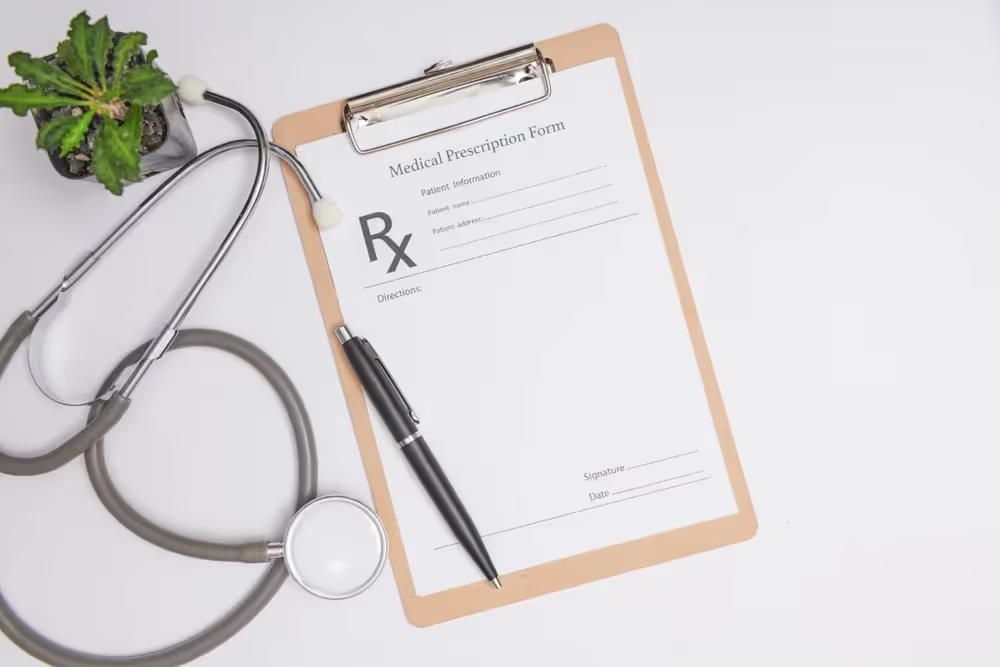
According to Statista, 22% of all medical debt in the United States belongs to people who owe more than $5,000. When you do the math, that’s a ton of lost revenue for providers. Unpaid medical bills are nothing new regarding the struggles of running a healthcare organization. It’s been the downfall for many businesses, causing unnecessary financial strain and high administrative costs.
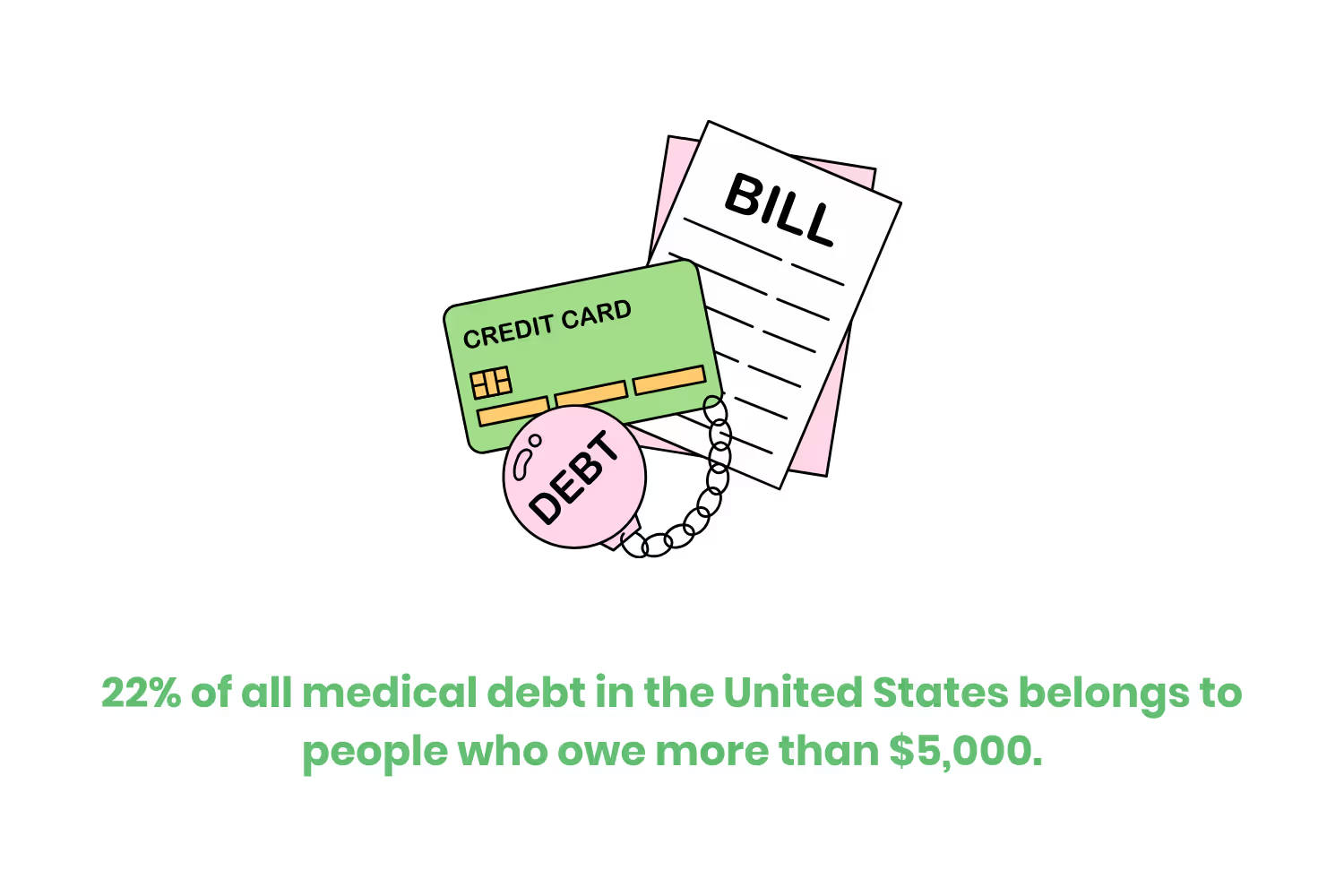
That’s why learning the best ways to produce and follow up on payment invoices is so important. You not only ensure financial success within your practice. But by being respectful and transparent, you can quickly earn patients’ trust and boost customer satisfaction.
Reducing overdue payments on invoices hugely strengthens your revenue cycle. So understanding the cause of unpaid invoices, the impact they can have, and how to address them are key. Let’s get into it.
Causes of Unpaid Medical Invoices
I say this quite often, but only because it is true! Prevention is the best medicine. Not only for your physical health but your financial health, too.
As a business, there is only so much you can do to help patients financially. However, having compassion for your clients and what they may be going through can go a long way.
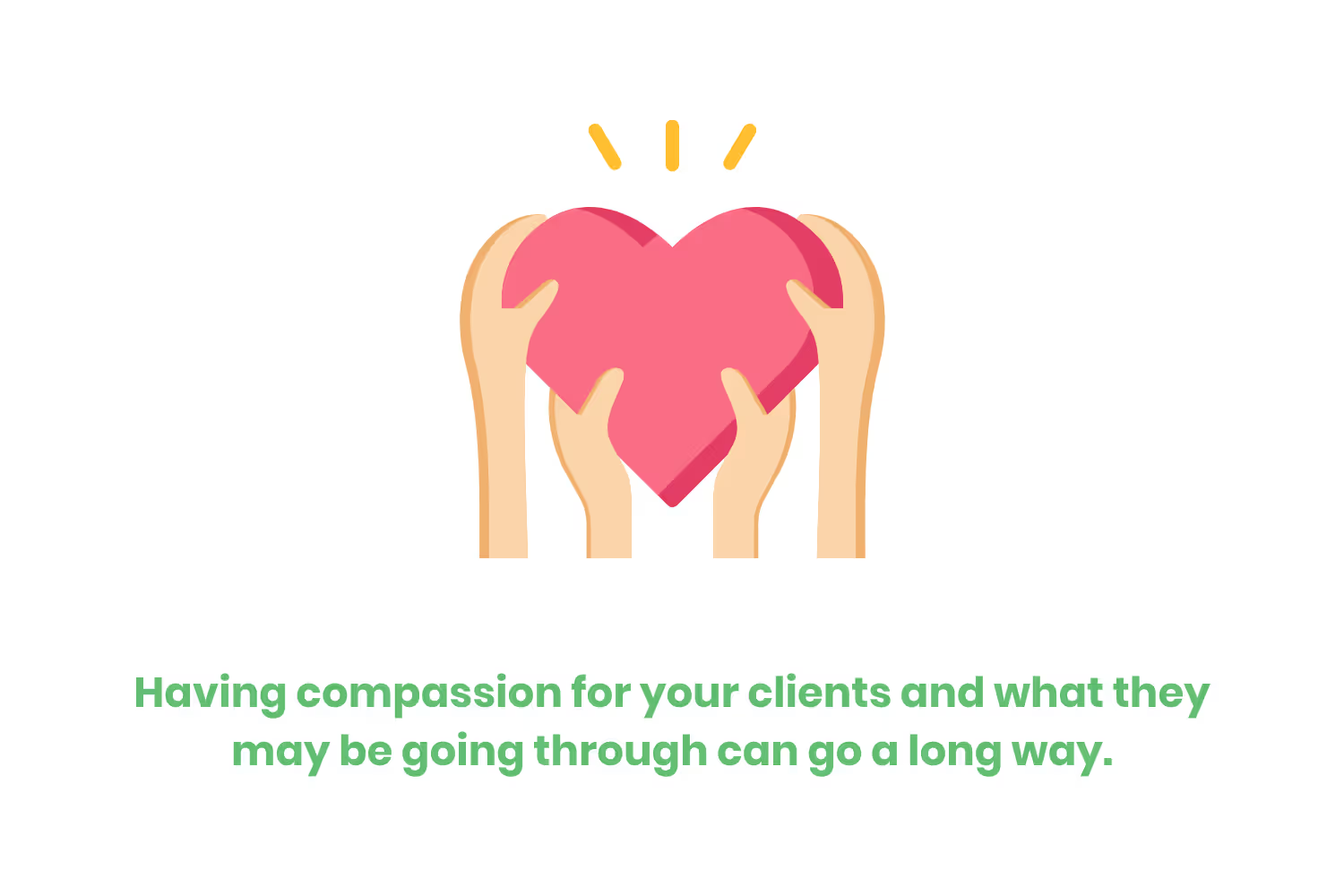
“You catch more flies with honey than vinegar”, is the saying I immediately think of. The last thing you want to do is aggressively confront a patient about an overdue balance.
The likelihood of them wanting to work with you to pay off what they owe often goes down if there is not a good report. And sometimes, it’s not even the patient’s fault! So let’s go over some of the reasons you may face unpaid invoices.
Lack of Insurance/Insurance Issues
I think one of the more obvious reasons for a situation like this to arise is that your patient just can’t afford the bill. Did you know that nearly 25 million people under the age of 65 have no health insurance? I think as Americans, we can all appreciate just how astronomical medical bills can be. Even with health insurance, the numbers can get high! Consider the costs for those who do not have insurance.
Your patients may not have the option to purchase health insurance through their workplace. Self-employed individuals, or those not employees at all, may not be able to afford steep insurance premiums. Whatever the reason, this lack of insurance can easily turn into a large financial burden.

Another reason could fall onto the shoulders of the patient’s insurance company. Insurance issues are another likely culprit as to why a balance might stay outstanding. Errors or missed coverage can result in a more expensive invoice total. One that might be too much for your patient to pay.
Medical Billing/In-House Errors
Billing errors and miscommunication on your organization’s side are always a possible culprits.
Remember, not all overdue invoices are simply the patient’s fault.
Being able to gather evidence and address the root cause of each case is best practice. This way, you can analyze any patterns moving forward. In the end, this helps you avoid any in-house mistakes that might cause an overdue payment.
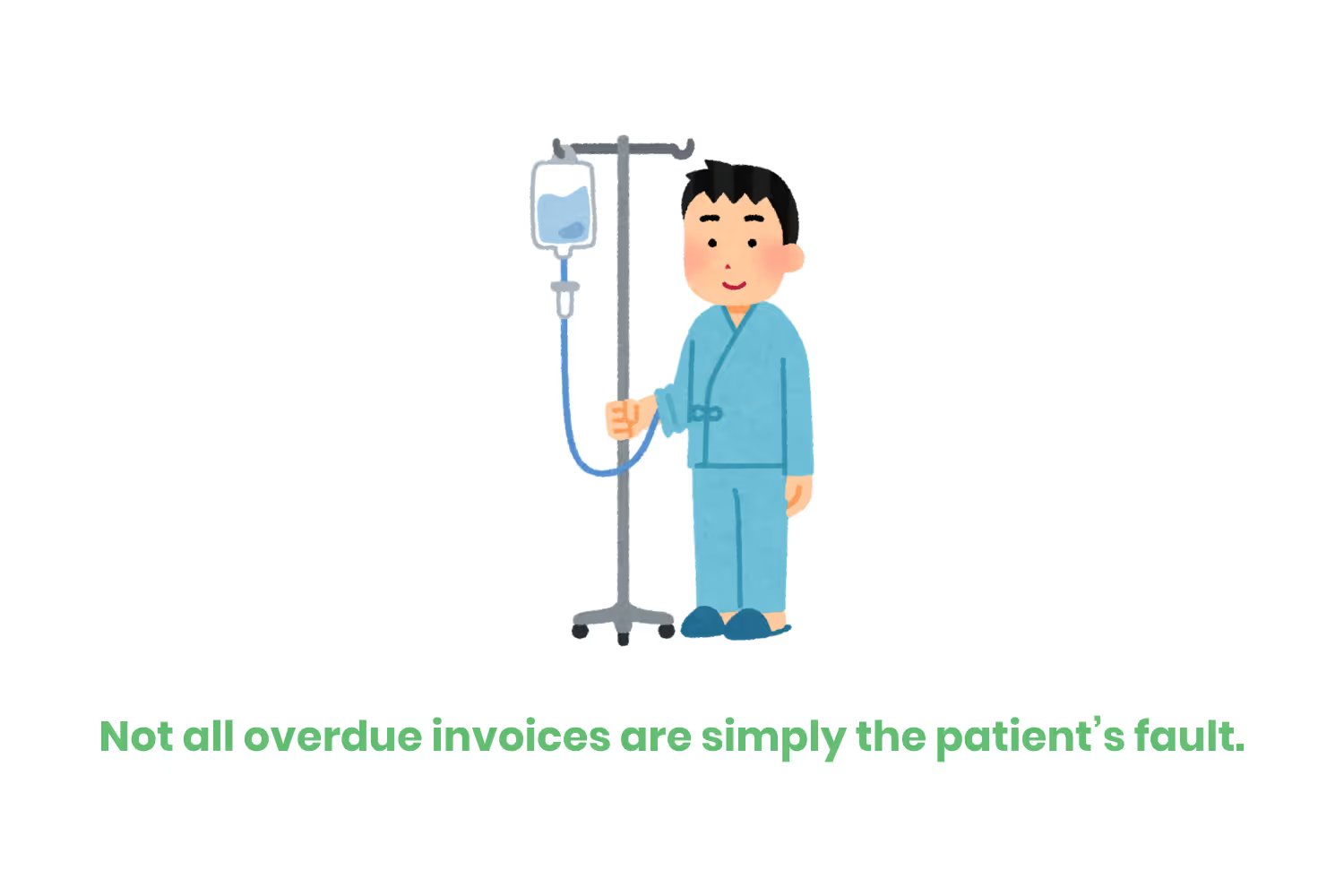
Impact of Unpaid Medical Bills
Unpaid medical bills have a huge impact on healthcare organizations. However, it’s not just the financial aspect that matters here. There are a few ways overdue payments can negatively affect your business.
Let’s take a look at some of the more common reasons.
Financial Strain
First, we will just go ahead and reiterate the financial burden that overdue payments bring. I know, I already mentioned this before.
But financial stress reaches farther than one might originally think.
Unpaid bills piling up means a reduction of revenue, which comes with all sorts of issues.
Such as making it challenging for organizations to cover administration costs.
Patient/Provider Relationship
I mentioned earlier how jumping down the throats of your patients is probably not the best idea when trying to collect payments.
But let me just express, once again, how you should never do that.
Unfortunately, all of that aside, just the idea of having an overdue bill might dissuade patients from returning to your clinic. You don’t want patients to avoid coming to the doctor due to financial concerns or a strained relationship with your organization.
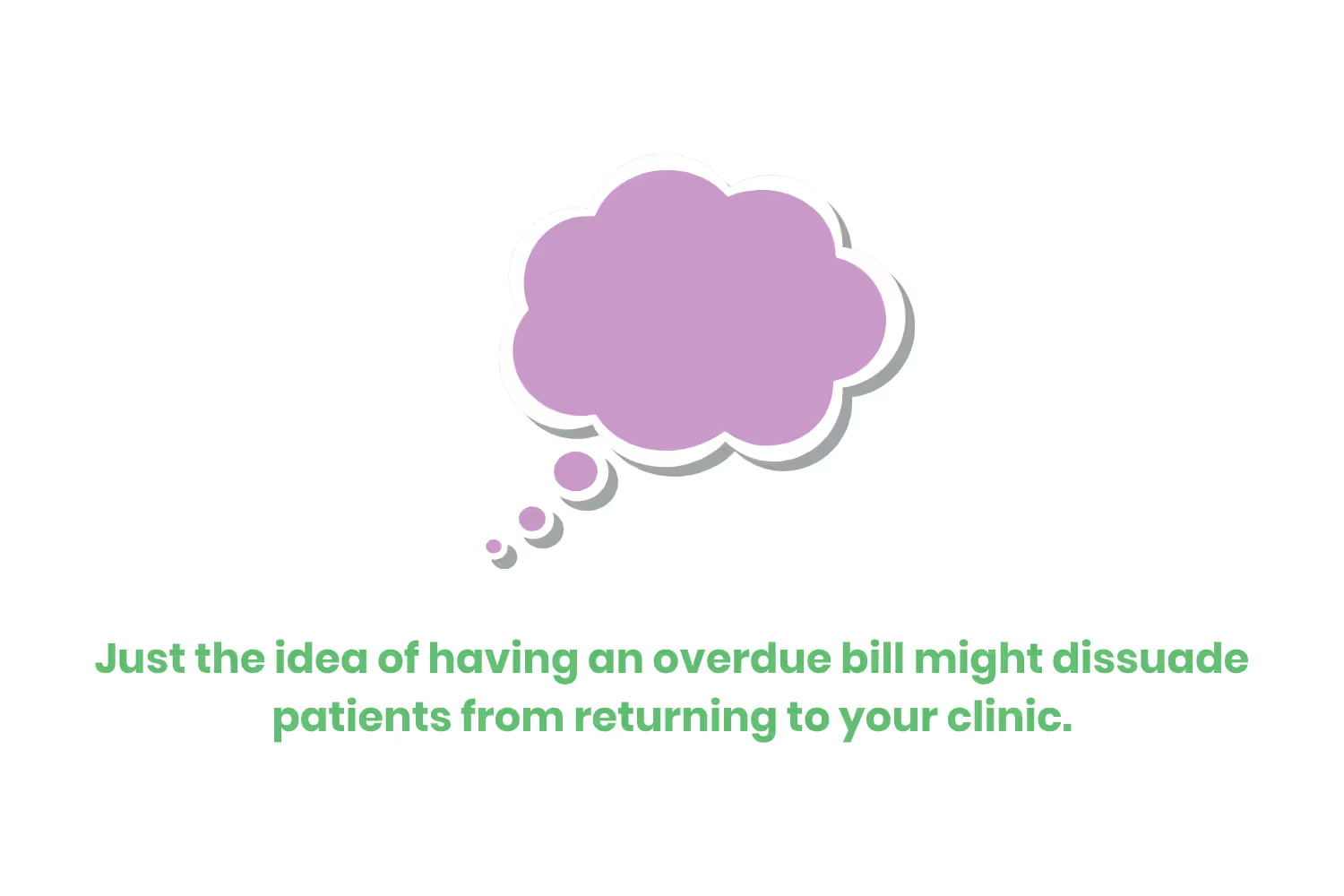
Legal Action
In some cases, healthcare organizations need to take legal action for a debt in collections.
If this is the case, you are probably looking at a lengthy and costly process. Just more of a financial burden on top of not receiving the original reimbursement due.
In some cases, you can spend more on legal costs than the actual pending bill itself!
Quality of Care
The financial strain on a company usually means cutbacks on day-to-day administrative tools.
In the healthcare field, this can include things such as medical equipment and a well-trained staff.
Maintaining infrastructure and investing in quality technology becomes more difficult. This can then result in a strained provider/patient relationship due to declining quality of care.
Medical Invoice Follow-Up Strategies
So what should you do when you have an overdue balance on your hands? I spoke about not going into the collection aggressively, but that doesn’t explain much. So here are a few tips you should take into consideration when following up on patient balances.
Make sure to send reminders of overdue balances through multiple forms of media.
Sometimes it takes more than just a reminder in red text on the bottom of a mail statement to get the ball rolling. Phone calls, emails, and text messages are more likely to warrant a response and an action.
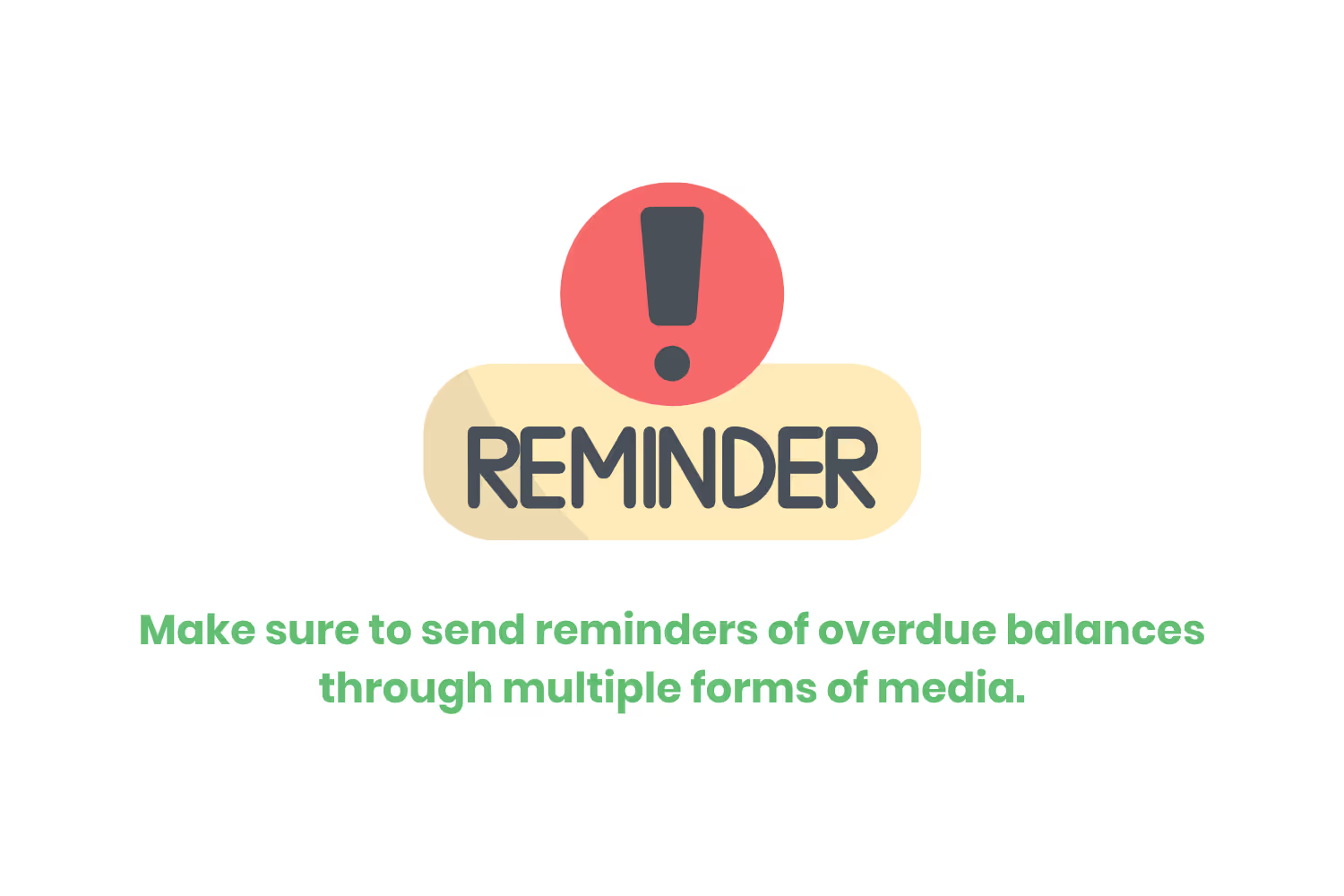
Even asking politiely can go a long way!
Consider personalizing these follow-ups to discuss outstanding invoices. Sending the same robotic message to everyone comes off as cold and otherwise uncaring. People like to feel like they are communicating with a person, so don’t be afraid to add some personal flare!
Offering financial assistance to your patients is another great way to start chipping down on a large overdue balance. Making the due amount more bite-sized for your client can make things more manageable for you and them. Remember, increment payments are better than no payments at all!
Conclusion
Handling unpaid invoices requires both patience and an understanding of how revenue cycle management works. Collecting outstanding revenue is a critical part of running a healthcare practice. Knowing the root causes of unpaid invoices allows your billing team to more effectively and empathetically address them.
Implement respectful and personalized follow-up strategies. Make sure you educate your staff on proper medical billing and coding techniques to avoid internal mistakes. Your staff should have strategies similar to the ones listed today that they can work into their everyday practice. These strategies not only strengthen relationships with patients but also help streamline your organization’s workflow.
Keep the line of communication open with your patients as you both navigate insurance regulations and payment plans. By balancing firmness with empathy, you can build trust and understanding between you and your clientele when it comes to finances.
Emphasize your product's unique features or benefits to differentiate it from competitors
In nec dictum adipiscing pharetra enim etiam scelerisque dolor purus ipsum egestas cursus vulputate arcu egestas ut eu sed mollis consectetur mattis pharetra curabitur et maecenas in mattis fames consectetur ipsum quis risus mauris aliquam ornare nisl purus at ipsum nulla accumsan consectetur vestibulum suspendisse aliquam condimentum scelerisque lacinia pellentesque vestibulum condimentum turpis ligula pharetra dictum sapien facilisis sapien at sagittis et cursus congue.
- Pharetra curabitur et maecenas in mattis fames consectetur ipsum quis risus.
- Justo urna nisi auctor consequat consectetur dolor lectus blandit.
- Eget egestas volutpat lacinia vestibulum vitae mattis hendrerit.
- Ornare elit odio tellus orci bibendum dictum id sem congue enim amet diam.
Incorporate statistics or specific numbers to highlight the effectiveness or popularity of your offering
Convallis pellentesque ullamcorper sapien sed tristique fermentum proin amet quam tincidunt feugiat vitae neque quisque odio ut pellentesque ac mauris eget lectus. Pretium arcu turpis lacus sapien sit at eu sapien duis magna nunc nibh nam non ut nibh ultrices ultrices elementum egestas enim nisl sed cursus pellentesque sit dignissim enim euismod sit et convallis sed pelis viverra quam at nisl sit pharetra enim nisl nec vestibulum posuere in volutpat sed blandit neque risus.

Use time-sensitive language to encourage immediate action, such as "Limited Time Offer
Feugiat vitae neque quisque odio ut pellentesque ac mauris eget lectus. Pretium arcu turpis lacus sapien sit at eu sapien duis magna nunc nibh nam non ut nibh ultrices ultrices elementum egestas enim nisl sed cursus pellentesque sit dignissim enim euismod sit et convallis sed pelis viverra quam at nisl sit pharetra enim nisl nec vestibulum posuere in volutpat sed blandit neque risus.
- Pharetra curabitur et maecenas in mattis fames consectetur ipsum quis risus.
- Justo urna nisi auctor consequat consectetur dolor lectus blandit.
- Eget egestas volutpat lacinia vestibulum vitae mattis hendrerit.
- Ornare elit odio tellus orci bibendum dictum id sem congue enim amet diam.
Address customer pain points directly by showing how your product solves their problems
Feugiat vitae neque quisque odio ut pellentesque ac mauris eget lectus. Pretium arcu turpis lacus sapien sit at eu sapien duis magna nunc nibh nam non ut nibh ultrices ultrices elementum egestas enim nisl sed cursus pellentesque sit dignissim enim euismod sit et convallis sed pelis viverra quam at nisl sit pharetra enim nisl nec vestibulum posuere in volutpat sed blandit neque risus.
Vel etiam vel amet aenean eget in habitasse nunc duis tellus sem turpis risus aliquam ac volutpat tellus eu faucibus ullamcorper.
Tailor titles to your ideal customer segment using phrases like "Designed for Busy Professionals
Sed pretium id nibh id sit felis vitae volutpat volutpat adipiscing at sodales neque lectus mi phasellus commodo at elit suspendisse ornare faucibus lectus purus viverra in nec aliquet commodo et sed sed nisi tempor mi pellentesque arcu viverra pretium duis enim vulputate dignissim etiam ultrices vitae neque urna proin nibh diam turpis augue lacus.




